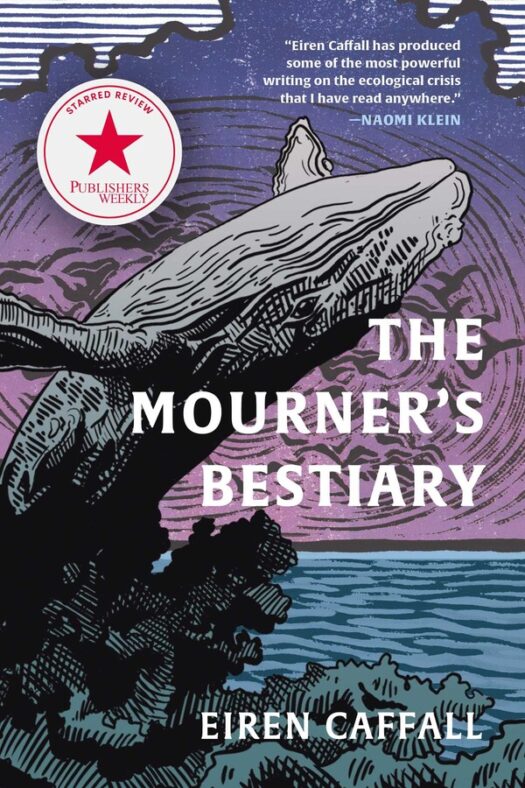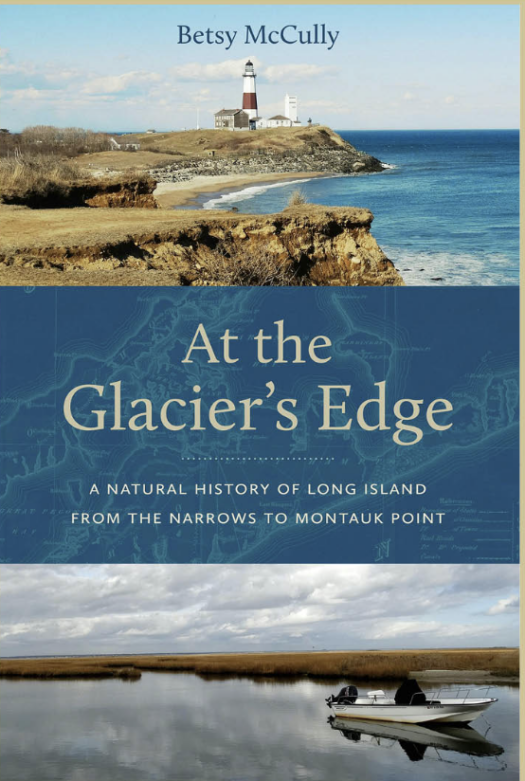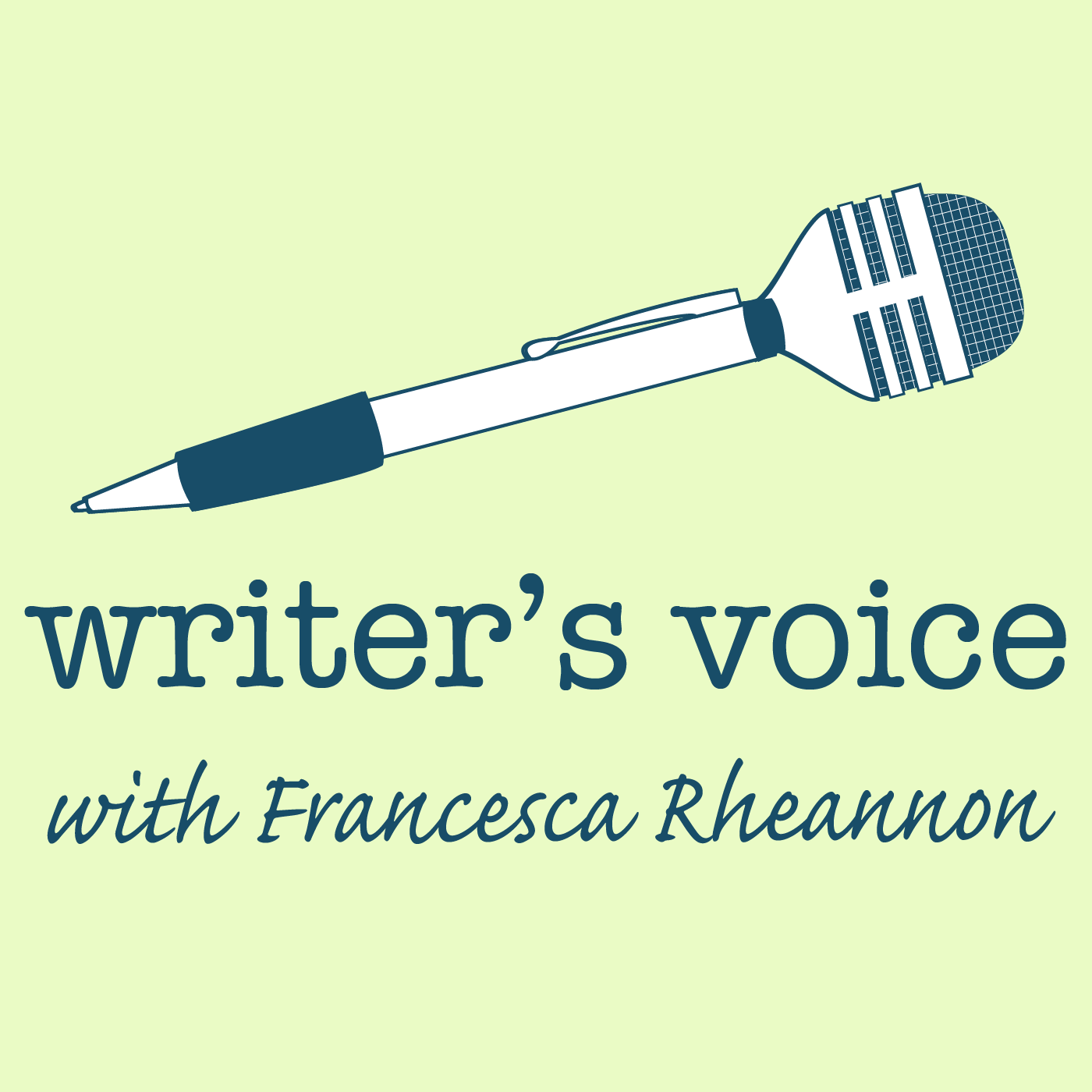Eiren Caffall THE MOURNER’S BESTIARY & Betsy McCully, AT THE GLACIER’S EDGE
Description
In this episode of Writer’s Voice, we explore the intersections of personal and ecological narratives through two powerful interviews.
Francesca speaks with writer and musician Eiren Caffall about her memoir, The Mourner’s Bestiary, and naturalist Betsy McCully, author of At the Glacier’s Edge: A Natural History of Long Island from the Narrows to Montauk Point. These conversations explore the interconnectedness of environmental degradation and restoration, personal story, and the history of place.
Topics Covered:
- Environmental Parallels: How personal narratives of illness can reflect larger environmental crises.
- Climate Change and Coastal Resilience: Insights into Long Island’s history of glaciation and ongoing environmental restoration efforts.
- Ecological Restoration and Community: The importance of grassroots efforts in restoring and protecting local ecosystems.
- The Human Connection to Nature: How loss, grief, and recovery in our own lives can mirror those within the environment.
Writers Voice— in depth conversation with writers of all genres, on the air since 2004.
Connect with Us: Follow us on social media to stay up-to-date on the latest episodes and news. Find us on Facebook at Writers Voice with Francesca Rheannon, on Instagram @WritersVoicePodcast or find us on X/Twitter@WritersVoice.
Key words: marine ecology, Long Island Sound, Gulf of Maine, Eiren Caffall, Betsy McCully, global warming, climate change, PKD, Writer’s Voice, environmental memoir
Eiren Caffall: A Personal and Ecological Grief
<figure class="alignleft size-large is-resized">
 </figure>
</figure>Caffall’s The Mourner’s Bestiary intertwines her experience of living with polycystic kidney disease (PKD) with her deep concern for environmental issues, particularly the degradation of aquatic ecosystems.
Caffall describes how witnessing environmental collapse, such as the mass die-off in Long Island Sound in 1987, paralleled her family’s history with PKD. She uses this backdrop to reflect on the broader implications of how humans and the environment experience collapse and healing.
As Caffall states, her work seeks to “ground our understanding of what’s happening to the planet in something as physical as our own disease progress.”
Key Quote:
“I was born in a flooding body, on a flooding planet, in a flooding family.” — Eiren Caffall
<figure class="aligncenter size-large is-resized">
 </figure>
</figure>Betsy McCully: Long Island’s Fragile Ecosystem
In At the Glacier’s Edge, McCully examines the natural history of Long Island and how human intervention has reshaped this delicate landscape.
From coastal erosion to the loss of barrier islands, McCully explores how unchecked development threatens not only human settlements but also diverse habitats.
She stresses the urgent need for sustainable practices to preserve Long Island’s unique natural history. As McCully explains, “Barrier islands were never meant to be built on… as the sea level rises, we are essentially erasing these natural systems.”
Key Quote:
“We are ourselves as a human species, in a way, being on an edge… a metaphor for how precarious our position has become.” — Betsy McCully
Transcript
Francesca Rheannon
This is Writer’s Voice Today, a Venn diagram of sorts, two books that share a look at the natural history of one of America’s richest waterways, the Long Island Sound. But one of those books adds a personal memoir of illness to natural history.
Eirenn Caffall
It was at that point that I realized I couldn’t write about the ecosystem from my perspective or my understanding without writing about my family and our bodies at the same time. For so many reasons. But part of it was because that connection felt impossible to avoid for me personally, but also because I think it’s an important way to ground our understanding of what’s happening to the planet in something as physical as our own disease progress, to be able to understand in a visceral way what it is that’s happening on the planet so that it’s not outside of us. Because it isn’t actually outside of us. Not for anyone.
Francesca Rheannon
We talk first with Eirenn Caffall about the Mourner’s Bestiary, which weaves together a literary memoir on loss, chronic illness and generational healing with the author’s stories of the creatures of two collapsing marine ecosystems, the Long Island Sound and the Gulf of Maine.
Later in the show, we talk with naturalist Betsy McCulley about her beautifully rendered portrait of the natural history of Long island at the glacier’s edge.
That’s all coming up on today’s Writer’s Voice, in depth conversation with writers of all genres on the air since 2004.
Thanks for joining us this hour on this station, your favorite podcast app, or@writersvoice.net I’m Francesca Rheannon.
Eirenn Caffl isn’t supposed to be alive.
Diagnosed at an early age with an inherited kidney disease called pkd, she was told she’d probably not make it past the age of 40.
Her disease has been a constant in her family for 200 years, and she’s the mother of a child who may inherit that legacy.
Illness and loss have been part of her family culture, but so has silence about them.
With her memoir, the Mourner’s Bestiary, Cathal eloquently breaks that silence, but she goes further, linking mourning on a personal level to mourning for the loss of the species she grew up loving in the Gulf of Maine and the Long Island Sound.
She reflects on what it means to inhabit a flooding body on a flooding planet and draws compelling parallels between the way disease alters bodies and how human actions disrupt the environment.
Her connection to creatures and ecosystems adds a profound layer to her story, exploring grief, survival and resilience.
Eirenn Caffel is a Writer and a musician, her writings on loss and nature, oceans and extinction has appeared in Guernica, Los Angeles, Review of Books, Literary Hub, and elsewhere. The Mourner’s Bestiary is out from Simon and Schuster.
Eirenn Caffel, welcome to Writer’s Voice.
Eirenn Caffall
Thank you so much, Francesca.
Francesca Rheannon
This book, the Mourner’s Bestiary, right up in the title, it tells you that it has something to do with animals and the natural environment and it also has something to do with confronting loss and death.
The book weaves the story of your own history of a genetic illness, pkd with the larger assault on the health of our waterways and our oceans from climate change and also from other forms of human assaults on the environment.
You say I was born in a flooding body, on a flooding planet, in a flooding family. What do you mean by that?
What do you mean by that?
Eirenn Caffall
Yes.
Well, I was born into a family that had over 150 year history of a genetic disease, polycystic kidney disease, that creates fluid filled cysts in the kidneys until the kidneys are overwhelmed and go into kidney failure. And the disease is really, it’s about flooding the body in a way that is unmanageable. So you have a relationship as a kidney patient to the way that your body processes fluid and water. And as a person with this disease, you spend a long time slowly filling up with unmanageable water. I had a family history of it. My father had it, his father and his father before him. And I watched the work of it on my dad’s body, the flooding planet. Obviously I was born into a planet alre





